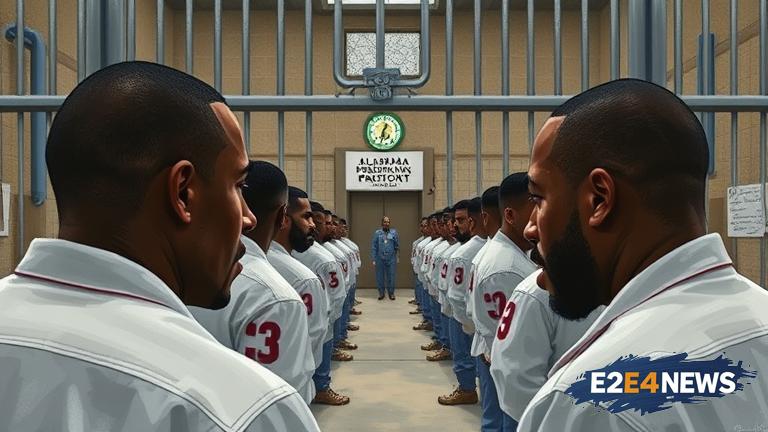The state of Alabama is taking steps to reform its prison system, which has been plagued by overcrowding, violence, and poor living conditions. The Alabama Department of Corrections has announced plans to build three new prisons, which will provide more space and better facilities for inmates. The new prisons will be designed to accommodate approximately 10,000 inmates and will feature improved security measures, educational programs, and mental health services. The project is expected to cost around $1.2 billion and will be funded through a combination of state and federal funds. The reform efforts are being driven by a federal lawsuit filed in 2014, which alleged that the state’s prisons were violating the constitutional rights of inmates. The lawsuit claimed that the prisons were overcrowded, understaffed, and provided inadequate medical care. In response to the lawsuit, the state has implemented a number of reforms, including the creation of a new prison management system and the hiring of additional staff. The state has also increased funding for prison programs, including education and job training initiatives. Despite these efforts, the prison system still faces significant challenges, including a shortage of correctional officers and inadequate mental health services. The state is working to address these issues through the recruitment of new officers and the implementation of new mental health programs. The reform efforts are being closely watched by civil rights groups and advocates for prison reform, who are pushing for more comprehensive changes to the system. The Alabama Prison Reform Task Force has been established to oversee the reform efforts and ensure that the state is meeting its obligations under the federal lawsuit. The task force is composed of lawmakers, corrections officials, and advocates for prison reform. The state is also working to reduce recidivism rates through the implementation of new programs and services, including job training and placement initiatives. Additionally, the state is exploring alternative sentencing options, such as community-based programs, to reduce the number of people incarcerated. The reform efforts are expected to take several years to complete, but officials are hopeful that they will lead to significant improvements in the state’s prison system. The state’s prison population has been declining in recent years, but it still remains one of the highest in the country. The reform efforts are also expected to have a positive impact on public safety, as inmates who receive education and job training are less likely to commit crimes upon release. Overall, the reform efforts in Alabama’s prison system are a significant step forward, but more work needs to be done to address the systemic issues that have plagued the system for decades.
Wed. Oct 22nd, 2025
